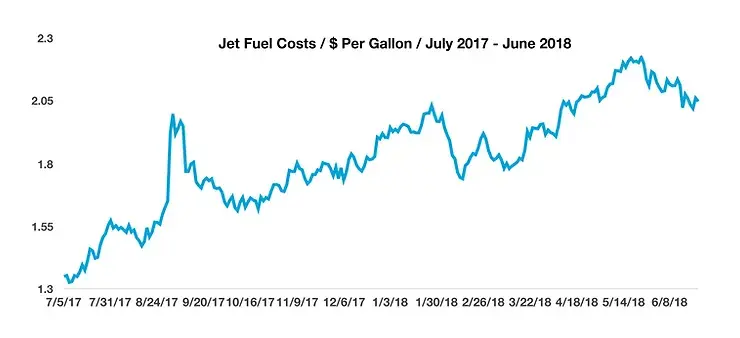Travel & Airlines
The recent rise in fuel prices along with the increased cyclical demand for fuel during the summer months has elevated airfare prices higher. Fuel is the single largest expense for most airlines, surpassing labor costs.
Jet fuel prices have surged over 50% in the past year, causing airlines to pass along the rising costs in the form of higher fares. Four years ago, as fuel prices fell, airlines passed along the cost savings in the form of lower fares, thus creating a competitive and dynamic environment for the airline industry.
Some airlines have been clever and have utilized fuel options as a hedge to counter rising fuel costs. Fuel hedging strategies have become more sophisticated and common practice over the past few years.
Jet engine manufacturers have also taken into account the volatility of jet fuel prices and have engineered newly designed engines that provide greater flying time but with less fuel consumption.
Sources: https://www.eia.gov/dnav


Comments